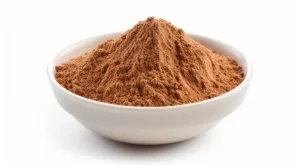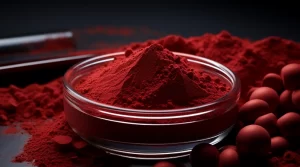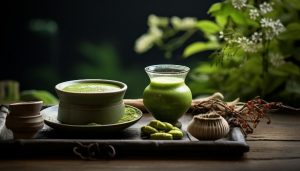Curcumin and health

Curcumin is a phenolic compound extracted from the ginger plant Curcuma lon-gaL. It has antioxidant, anti-inflammatory, anti-tumor, anti-HIV, anti-atherosclerosis, and hypolipidemic effects.
However, the solubility of natural curcumin is very poor, and the intestinal absorption rate is relatively low. Curcumin cannot exert the required clinical effects when consumed in small amounts, so it is best to take optimized curcumin. There are currently a variety of patented curcumins on the market, with absorption rates 10 to 144 times that of standardized curcumin. Therefore, the price gap is also very large, but some technologies have not yet been commercialized.
Curcumin Antioxidant
The molecular characteristic of curcumin is that it has both phenolic and β-diketone structures, so curcumin is a unique antioxidant containing many functional groups. Not only that, curcumin can also increase the activity of various antioxidant enzymes in the body, such as glutathione reductase, catalase, copper/zinc superoxide dismutase, etc., and enhance the ability of these antioxidant enzymes to scavenge free radicals. , thereby reducing oxidative stress response.
Curcumin Anti-inflammatory effect
The anti-inflammatory effect of curcumin is one of the most widely used effects. Studies have found that the anti-inflammatory activity of curcumin is comparable to steroidal drugs and non-steroidal drugs, such as indomethacin and phenylbutazone, and does not have the effects of these drugs. side effect.
The anti-inflammatory effect of curcumin is through inhibiting major inflammatory mediators such as cyclooxygenase (COX-1, COX-2), lipoxygenase (LOX), TNF-α, interferon γ, iNOS, and transcription factors such as NF -kB and activator protein-1 (AP-1) to exert their effects.
The anti-inflammatory effect of curcumin is widely used in various chronic diseases, such as cardiovascular disease, liver disease, tumors, rhinitis, asthma, digestive tract inflammation, skin inflammation, autoimmune diseases, Alzheimer’s disease, etc.
Curcumin Anti-tumor effect
Studies have found that the anti-tumor effect of curcumin is mainly achieved by inducing tumor cell apoptosis and regulating cell survival pathways. The targets involved include transcription factors, growth factors, inflammatory factors, receptors, enzymes, etc.
For different tumors, curcumin may combine different signaling pathways to exert anti-tumor effects. Current research mainly focuses on: colorectal cancer, breast cancer, prostate cancer, pancreatic cancer, lung cancer, gastric cancer, multiple myeloma, head and neck malignant tumors, etc.
These studies found that curcumin, alone or in combination with other chemotherapy drugs, radiation therapy or surgery, may be a potential anti-tumor approach and may also be used to treat tumors that are resistant to chemotherapy drugs.
main food sources
Ginger, mustard, and curry are rich in curcumin and are the main food sources of curcumin. The content of turmeric is about 3100mg/100g, and that of curry powder is 50-580mg/100g. The curcumin content in turmeric from different origins varies, generally ranging from 1% to 6%.
curcumin supplier: www.backvita.com
Email: [email protected]
Phone: +86 (029) 8187 2325
References:
[1] Chinese Nutrition Society. Reference intake of dietary nutrients for Chinese residents. Beijing: Science Press, 2014. [2]Okada, Kunihiko , et al. “Curcumin and especially tetrahydrocurcumin ameliorate oxidative stress-induced renal injury in mice. ” Journal of Nutrition 131.8:2090-2095.[3]Shanmugam, MK , et al. “The multifaceted role of curcumin in cancer prevention and treatment.” Molecules 20.2(2015):2728-69.[4]Hanai H, Sugimoto K. Curcumin has Bright Prospects for the Treatment of Inflammatory Bowel Disease[J]. Current Pharmaceutical Design, 2009.[5 ] Park, W., et al. “New Perspectives of Curcumin in Cancer Prevention.” Cancer Prevention Research 6.5(2013):387-400.
() ()


